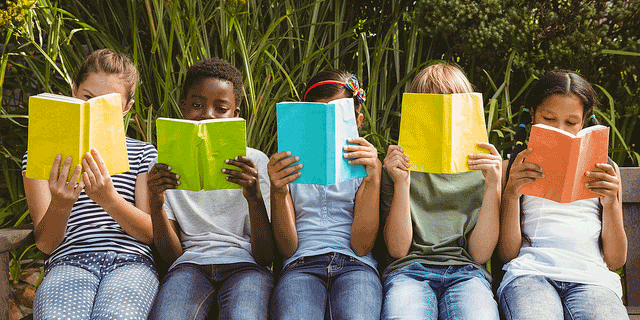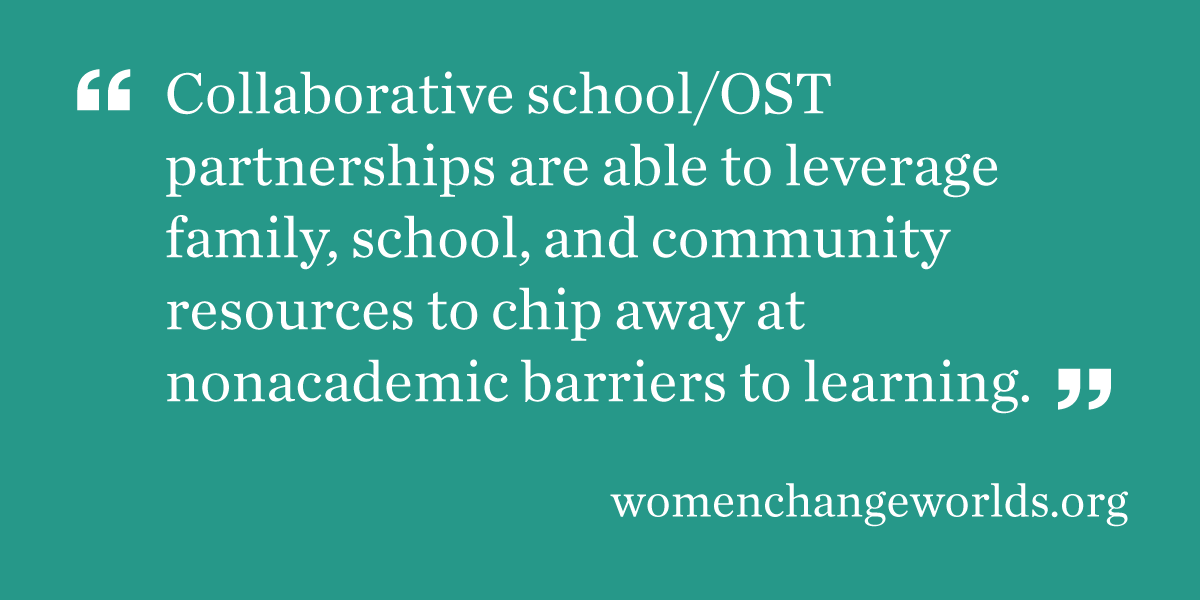
The days are getting shorter, the air feels crisper here in the Northeast, and children everywhere are heading back to school -- a welcome return to routine and to the exciting possibilities of a new year, but still it’s hard to let go of summer. Fresh and sweet in our minds here at the National Institute on Out-of-School Time (NIOST) (and hopefully in many of your minds, too) are the unique joys of summer -- yes, popsicles and bonus hours of daylight, but also the special learning opportunities that summer brings.
Summer learning programs offer the chance to develop interests and skills, focus on social and emotional learning, and engage youth in positive ways. Summer learning programs can also offer an important strategy in closing the achievement gap between low-income children and their middle- and upper-class peers.
Luckily, these kinds of experiences do not need to be packed away with our shorts and flip flops. More and more, out-of-school time (OST) programs are partnering with schools to create amazing, year-round learning experiences for children and youth. At NIOST, we believe collaborations like these are a critical ingredient to student success, and we applaud the work they are doing to engage with children and youth throughout the year.
The U.S. Department of Education’s 21st Century Community Learning Centers (21st CCLC) program, the only federal funding stream dedicated to afterschool, actually requires grantees to work in collaboration with schools. In practice, partnering with schools may simply mean that afterschool programs communicate student goals and learning needs with school staff, which is a great start.
Some programs, though, are going further -- modeling how a true partnership can produce positive youth outcomes. Through my work with the US Department of Education, I have had the pleasure of seeing such programs in action. For example, Rhode Island’s 21st CCLC grant supports an innovative Expanded Learning Opportunities (ELO) Initiative at Central Falls High School that allows students, driven by their interests, to earn academic credit in alternative ways. Students work closely with teachers and community members who provide hands-on learning either after school or in the summer. The students then create rigorous final products and do presentations to demonstrate their learning. Early data indicate that the approach is improving graduation rates.
 Boston After School & Beyond (BASB) is a public-private collaboration that advances student learning through a coordinated approach to school and community partnerships. Through initiatives such as Advancing Quality Partnerships (AQP) and the Summer Learning Project, BASB empowers organizations that serve Boston Public Schools (BPS) students after school and in the summer to provide high-quality social and emotional learning opportunities and to communicate with schools about the skills students develop at their programs. NIOST has helped BASB investigate the nature and functioning of such relationships. Schools, community partners, youth, and families are finding value in these intentional partnerships.
Boston After School & Beyond (BASB) is a public-private collaboration that advances student learning through a coordinated approach to school and community partnerships. Through initiatives such as Advancing Quality Partnerships (AQP) and the Summer Learning Project, BASB empowers organizations that serve Boston Public Schools (BPS) students after school and in the summer to provide high-quality social and emotional learning opportunities and to communicate with schools about the skills students develop at their programs. NIOST has helped BASB investigate the nature and functioning of such relationships. Schools, community partners, youth, and families are finding value in these intentional partnerships.
One of the major strengths of partnerships like these is that they are able to leverage family, school, and community resources to chip away at nonacademic barriers to learning and healthy development. Schools are ill-equipped to assume this responsibility alone, and teachers often lack sufficient resources to address the various needs of their students, such as learning disabilities, mental health issues, family instability, negative peer influences, and poverty. The flexibility of the OST field, backed by its expertise in positive youth development, enrichment, and social and emotional learning, can help to fill these gaps in our school system by complementing and supporting traditional education. So, rather than expecting schools and teachers to do this work alone, collaborative partnerships with OST programs can be integral building blocks on the road to educational equity.
As summer comes to a close and school-year routines settle in, remember that not every part of summer will leave us. Thanks to the creative partnerships between schools and OST programs, many of our nation’s youth (and the staff at NIOST) are looking forward to the continuation of collaborative, year-round learning opportunities.
Betsy Starr, M.Ed.is a research associate at the National Institute on Out-of-School Time (NIOST) at the Wellesley Centers for Women. Her work focuses on professional development and system-building for the field of afterschool and youth development.
When you subscribe to the blog, we will send you an e-mail when there are new updates on the site so you wouldn't miss them.
Comments